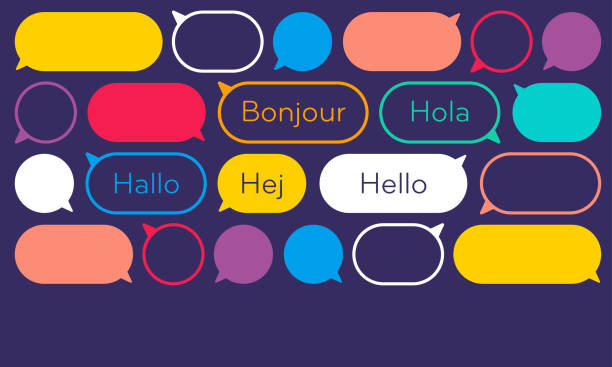Introduction to the concept of a преводеч
In our increasingly interconnected world, communication knows no boundaries. Enter the преводеч—a pivotal figure bridging diverse cultures and languages. As businesses expand globally and individuals explore new horizons, the role of a переводеч has never been more crucial. Translators are not just linguistic experts; they are cultural ambassadors who facilitate understanding in a complex landscape filled with nuances. Let’s dive into the essential contributions of these professionals as they navigate the challenges and opportunities presented by globalization.
The increasing importance of translation in a globalized world
As the world becomes more interconnected, the significance of translation has surged. Businesses now operate across borders, and effective communication is key to success.
Every day, millions interact in different languages. This exchange fosters collaboration and understanding among diverse cultures. Without skilled преводечs, messages can get lost or misinterpreted.
In fields like healthcare and technology, precise translation saves lives and drives innovation. Clear instructions or vital information must reach everyone without barriers.
Moreover, with social media’s rise, brands are engaging audiences globally. They need translators who capture their voice while adapting content to local nuances.
The demand for multilingual content continues to grow. Companies recognize that reaching a wider audience involves breaking language barriers through professional translation services.
The challenges faced by translators in today’s society
Translators encounter numerous challenges in today’s fast-paced world. One major hurdle is the sheer volume of content that needs to be translated daily. With globalization, businesses are expanding their reach and constantly generating new material.
Cultural nuances add another layer of complexity. A phrase may carry different meanings in various cultures, making it essential for translators to have a deep understanding of both languages involved.
Additionally, tight deadlines place immense pressure on professionals. Clients often expect quick turnarounds without compromising quality, leading to stress and potential burnout.
The rise of machine translation tools complicates matters further. While these technologies can assist with speed, they lack the finesse required for nuanced communication. Translators must continually prove their unique value amid this growing automation trend.
Staying updated with industry-specific terminology presents an ongoing challenge. Fields like law or medicine evolve rapidly; keeping pace is crucial for accuracy and credibility.
Advantages of using a преводеч for individuals and businesses
Utilizing a преводеч opens doors to new opportunities for both individuals and businesses. For individuals, it facilitates seamless communication across language barriers. Whether you’re traveling or engaging with diverse communities, having a skilled translator enhances your experiences.
For businesses, the advantages multiply significantly. A professional преводеч can accurately convey brand messages in multiple languages, ensuring that the essence of your company resonates with international audiences. This fosters trust and credibility.
Moreover, effective translation helps businesses navigate legal documents and contracts without misunderstandings. It minimizes risks associated with miscommunication while expanding market reach.
Cultural nuances are also addressed by a переводеч, which is crucial for successful marketing strategies. Tailoring content to fit local customs can make all the difference in customer engagement and satisfaction.
Investing in translation services not only saves time but also elevates overall operational efficiency within global markets.
The process of translation and its impact on communication
Translation is more than just swapping words from one language to another. It involves understanding context, culture, and nuance. A skilled преводеч immerses themselves in the original text to capture its essence.
Each translated piece can bridge gaps between cultures. Effective communication relies on precision, ensuring that ideas resonate with diverse audiences. This process not only conveys information but also fosters empathy and connection across borders.
Moreover, translation can influence perceptions. A well-crafted translation can elevate a brand’s image or make complex concepts accessible to new markets. The subtleties of language play a critical role in maintaining tone and intent during this delicate operation.
As globalization continues to expand, the impact of quality translations becomes ever more significant. They empower individuals and businesses alike by breaking down barriers and facilitating meaningful exchanges worldwide.
How technology has changed the role of a преводеч
Technology has dramatically transformed the role of a преводеч. Gone are the days when translators relied solely on pen and paper. Today, digital tools offer immense support.
Machine translation systems, such as Google Translate, have introduced speed and efficiency. They can provide quick translations for casual use. However, these tools lack nuance and cultural context.
Translation software also enhances productivity. Programs like CAT (Computer-Assisted Translation) help manage large projects more effectively. They allow for consistency across documents, which is crucial in professional settings.
Despite advancements in automation, human expertise remains irreplaceable. A skilled преводеч brings creativity and understanding to language that machines cannot replicate.
Now more than ever, collaboration between technology and human translators is essential in delivering high-quality results while navigating complex global communications effortlessly.
The future of translation in a constantly evolving world
The future of translation is poised for remarkable transformation. As globalization continues to accelerate, the demand for skilled преводеч will only increase. New languages and dialects are emerging as cultures blend.
Artificial intelligence plays a pivotal role in this evolution. Machine learning tools can assist human translators, streamlining workflows while enhancing accuracy. Yet, the human touch remains irreplaceable—cultural nuances require intuition that technology cannot replicate.
Remote collaboration tools also reshape how переводчици work together across borders. Virtual teams can tackle projects more efficiently than ever before.
Moreover, specialization is becoming essential. Industries such as legal or medical require precise terminology that generalists may not grasp fully.
As we look ahead, adaptability will be key for переводачей. They must embrace technological advancements while honing their unique skills to remain relevant in this dynamic landscape.
Conclusion: Emphasizing the vital
The role of a преводеч has become increasingly vital in our interconnected world. As cultures collide and business expands beyond borders, the demand for effective translation is at an all-time high. A skilled преводеч does more than convert words from one language to another; they bridge gaps between diverse communities.
With robust communication facilitated by proficient translators, misunderstandings can be minimized while collaboration flourishes. Individuals and businesses alike benefit from the expertise of a преводеч, ensuring that messages retain their original essence across languages.
As technology evolves, so too does the landscape for translation services. Machine learning and AI tools have transformed how translations are performed yet cannot wholly replace the nuanced understanding that human translators bring to the table. The future promises exciting developments, but the fundamental necessity for expert перевода remains unchanged.
In this fast-paced global arena where clarity is key, recognizing and valuing the work of a переводеч is essential. Their contributions help us navigate complex interactions with ease and foster relationships built on mutual understanding across languages and cultures.


